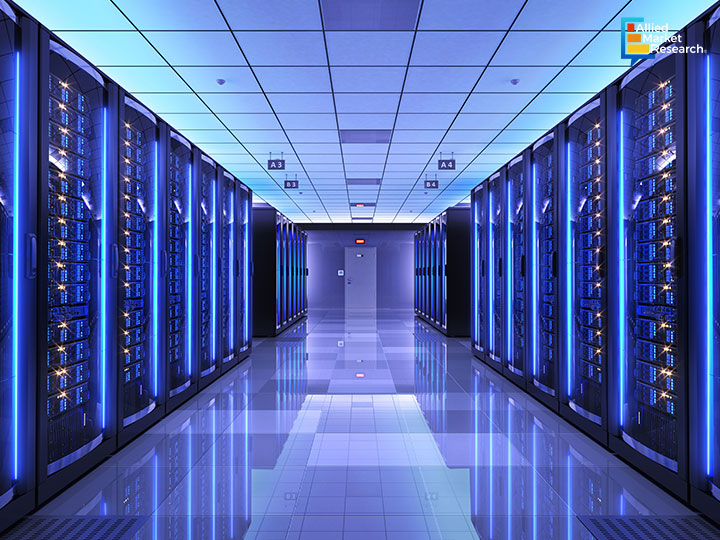Advanced Data Center Infrastructure: Boosting Business Efficiency in the Digital World

5 May
2025
Data centers are physical facilities composed of networked computers, storage systems, and computing infrastructure that organizations deploy to assemble, process, store, and disseminate large amounts of data. Modern data centers have evolved from traditional, highly controlled physical environments to virtualized, cloud-integrated infrastructures that support a wide array of applications and workloads across multi-cloud environments.
Why data centers are important for organizations
Every business relies on computing equipment to operate web applications, deliver services, sell products, and manage internal functions such as accounting, HR, and operations. With the rapid expansion of businesses across the globe, the need for IT applications also increases, requiring more equipment at a larger scale.
Nowadays, managing dispersed hardware across multiple locations is becoming critical and costly. To streamline operations and improve efficiency, companies centralize their IT infrastructure in data centers. These facilities offer a cost-effective way to house and manage vital equipment. Businesses either build their own on-premise data centers or depend on third-party data center services for greater flexibility and scalability. As the world becomes increasingly digital, the role and capabilities of data centers continue to expand, supporting cloud computing, AI, financial transactions, and healthcare services.
Evolution of the data center technology
Recent advancements in data center technology are driven by the proliferation of AI, high-performance computing, and surge in use of IoT devices. Data centers are rapidly upgrading their infrastructure with high-performance GPUs and specialized hardware to efficiently process massive datasets required by generative AI and machine learning applications. As sustainability has become a top priority among businesses, data centers are increasingly powered by renewable energy sources and deploying advanced energy storage systems to ensure uptime and reduce environmental impact. AI-powered management tools are used to monitor and optimize energy consumption, further enhancing efficiency.
In addition, the rise in penetration of edge computing is prompting the deployment of smaller, decentralized facilities closer to end users, reducing latency for real-time applications. Enhanced security measures, including biometric access and robust encryption, are implemented to address rise in concerns around data sovereignty and regulatory compliance.
Expanding role of data centers in a digitally driven world
The data center industry has observed prominent growth due to rise in need for these facilities across a wide array of industries. According to AMR, the sector is projected to exhibit a CAGR of 10.5% from 2021 to 2030. In cloud computing, data centers power major providers such as AWS, Microsoft Azure, and Google Cloud, delivering scalable, on-demand services through virtualization technology that optimizes hardware utilization. Financial institutions rely on data centers for secure, real-time transaction processing, risk management, and regulatory compliance, supporting essential operations such as management of trading platforms and customer databases. In healthcare, data centers facilitate the secure storage of electronic health records, telemedicine, and diagnostic data, thereby enhancing patient care through rapid and reliable access to medical information.
The growing influence of IoT and edge computing has driven data centers to process information closer to data sources, minimizing latency for applications such as autonomous vehicles and smart cities. Moreover, media and entertainment industries utilize distributed data centers to deliver content globally via content delivery networks, ensuring fast and reliable streaming experiences.
Accenture and Soben joined hands to strengthen capital project capabilities
In March 2025, Accenture, a global multinational professional services company, acquired Soben, a global construction consultancy headquartered in Glasgow. Known for its expertise in data center, pharmaceutical, and energy projects, Soben is expected to enhance Accenture’s capital project advisory and management services. With 250 professionals across Europe, the Americas, India, and Australia, Soben supports major hyperscalers and co-location providers. This move strengthens Accenture’s Industry X practice as organizations increasingly face capital project challenges including supply chain disruptions and labor shortages.
Endnote
Data centers are essential to the functioning of modern society, enabling everything from daily financial transactions to the streaming of high-definition content and the advancement of scientific research. With rapid digital transformation, the industry is embracing innovations in AI, sustainability, cooling technologies, and edge computing to meet rise in demand for performance, efficiency, and environmental responsibility. The future of data centers lies in their ability to adapt, scale, and support the ever-evolving landscape of digital applications.

Koyel Ghosh
Author’s Bio- Koyel Ghosh is a blogger with a strong passion and enjoys writing in miscellaneous domains, as she believes it lets her explore a wide variety of niches. She has an innate interest in creativity and enjoys experimenting with different writing styles. A writer who never stops imagining, she has been serving the corporate industry for the last five years.
Avenue: Entire Library membership of Allied Market Research Reports at your disposal
- Avenue is an innovative subscription-based online report database.
- Avail an online access to the entire library of syndicated reports on more than 2,000 niche industries and company profiles on more than 12,000 firms across 11 domains.
- A cost-effective model tailored for entrepreneurs, investors, and students & researchers at universities.
- Request customizations, suggest new reports, and avail analyst support as per your requirements.
- Get an access to the library of reports at any time from any device and anywhere.
Related Post
-
How are Submarine Cables Transforming Global Connectivity with Enhanced User Experience?
-
Endoscopy Procedures: Transformations in Techniques and Applications
-
AI-Powered Video Analytics: How the Product Actually Works for enterprises
-
Painting Robots: Transforming Precision Coating and Creative Applications
-
Innovations in Pharmacovigilance Systems Advancing Patient Safety
-
Understanding Edge Security: Keeping Data Safe Near the Source
-
Exploring the Use and Advancements of 3D Laser Scanners in Professional Applications
-
Reinforcing Industrial Controls with Smarter Tools and Training








